How is God calling us?
- Kourinthia Burton

- Nov 27, 2019
- 3 min read
Reflections from the 2nd Annual Border Ministries Summit. By Deacons Nancy and Terrance
The 2nd Annual Border Ministries Summit took place last week in Tucson, Arizona at St. Philip’s In the Hills Episcopal Church. The Rev. Canon Anna Carmichael, Deacon Nancy Key, Deacon Tom Hampson, and Deacon Terrance Goodpasture all attended this three-day conference.
The Tucson area of southern Arizona is a place of stunning dessert beauty, with cacti rising high in the sky with its blue sky, puffy clouds, and, as we experienced, occasional rain. Once out of the city, the terrain is mostly scrub brush, cacti, and vast stretches of land – framed by mountains rising high in the sky.
On Thursday we loaded up with about 50 other attendees in vans to make a trip to the border in Nogales, Arizona. Stopping at St. Andrew’s Episcopal Church, we shared a Eucharist and heard stories about what is happening on our borders. Arriving at the border, we encountered the metal bars, backed by metal mesh and topped with barbed wire. Peering through the barrier, we saw a haunting fresco painted on the wall of a building of a young boy, shot by a border patrol agent through the bars of the wall, because he (the agent) was “fearful” of being harmed by the rocks the boy was reportedly throwing.
The 200 miles of border between the United States and Mexico is an area of heightened social, political, and spiritual importance. Along that border, cultures, economies, and families are divided. The border offers the church a unique opportunity for ministry. Faith groups along the border have each responded to this situation in different ways.
On Friday, the keynote speaker was Dr. Miguel A. De La Torre and we watched his powerful screenplay, Trails of Hope and Terror. Beginning with the history of the Americas and the “manifest destiny” and policies embraced by the US, Dr. De La Torre highlighted some of the factors leading to the immigration crisis. The movie was a powerful look into what is happening on our borders from hopeful stories from some courageous people to some of the horrors that have occurred.
We also hear from a number of groups and people who are doing ministry to support and help asylum seekers. One of these ministries, Take Up a Cross, was created to honor and pray for the more than 3,000 migrant deaths in the Pima County area of Southern Arizona. Of these 3,000 migrants, more than 1/3 remain unidentified. The founder of this organization, Alicia Baucom has created pottery crosses to honor each of these unidentified persons. Each cross is made specifically for the migrant whose ID is stamped on it – one that has yet to be identified – a migrant whose family is holding out hope that their loved one will return home safely. With these crosses it is the hope of the ministry that we will pray for the individual and their families until they can be identified. Another ministry, “No More Deaths, leaves jugs of water along the trails carved throughout the territory. Other ministries provide food, shelter, and support to those awaiting their asylum hearing. Members of the Yaki tribe, who are a nomadic people, shared their struggles to maintain customs and rituals with the members on the Mexican side of the Border.
Here in the San Joaquin Valley, we are not likely to encounter migrants crossing the border, or those seeking asylum. The immigrants we encounter are most often those who have lived and worked in the United States for years – many of whom do not even remember living in Mexico, often because they were brought to this country as children. About half of all immigrants in our nation entered with Visas, but then overstayed these Visas – many times because they had moved far away from where they were due to report. It is these who are now living in fear of deportation to a country that they no longer call home. In our context, the three days we spent at the Borderlands Ministry taught us much, and left us with as many ideas and questions. How can we strive for justice and peace, seeing Christ in each person we encounter? How is God calling us to respond to the plight of these our sisters and brothers?





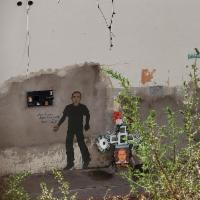
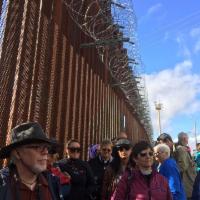
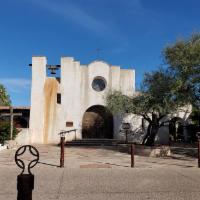
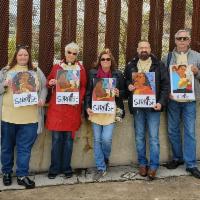
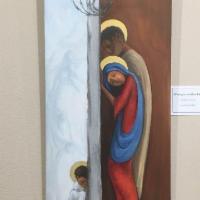
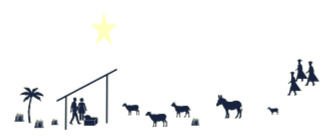


Comments